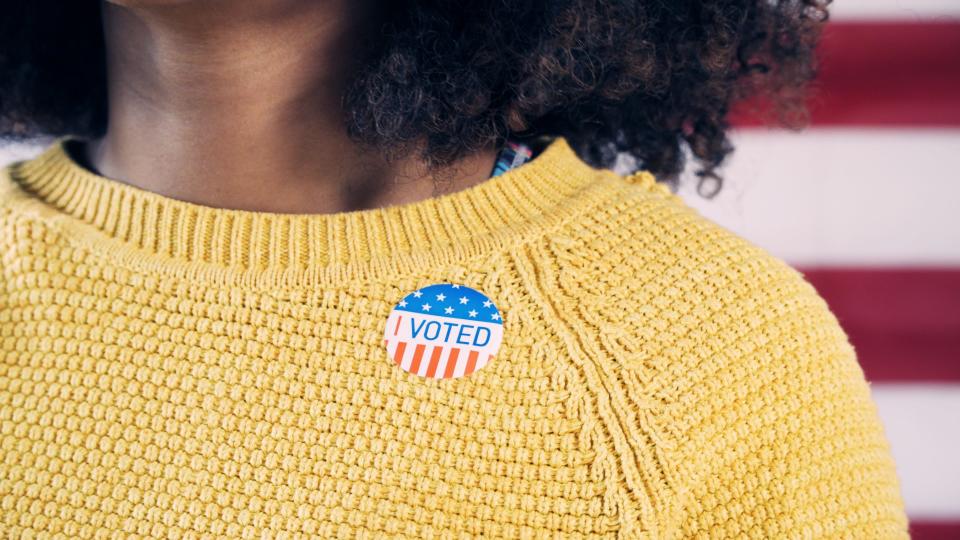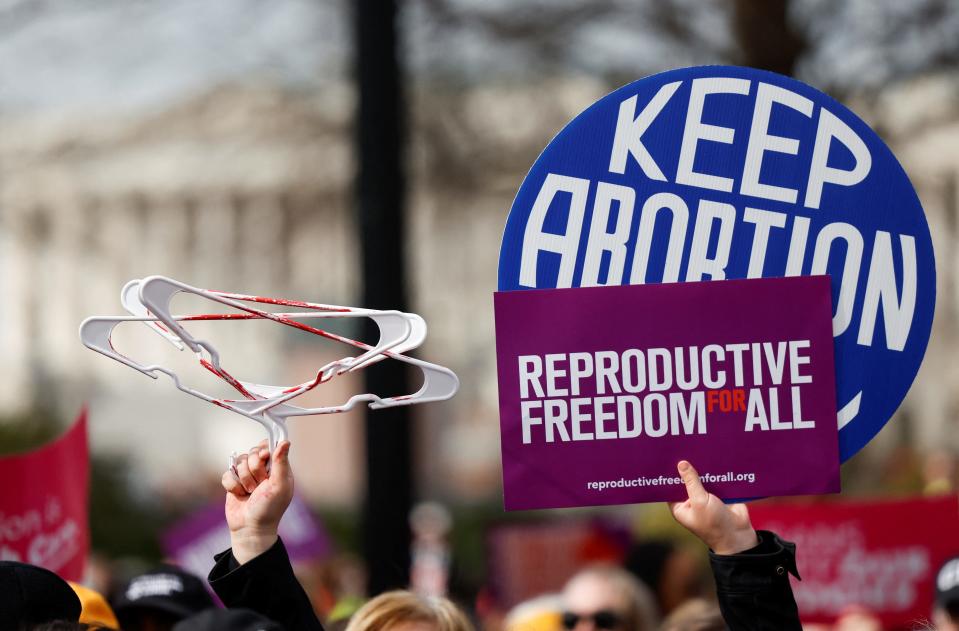Gen Z's widening gender divide has turned political. It's ruining our relationships.
Gen Z has a major problem. We are divided.
Everyone knows we can be passionate about our politics, which can lead to some differences. But what many might not realize is that Generation Z, spanning from 1997 to 2012, has a major division along gender lines that other generations don't seem to be dealing with.
We differ so much that it's starting to be a problem with how we see each other.
In America, 40% of young women in America identify as liberal compared with only 25% of their male peers. On the other hand, 29% of young men identify as conservative compared with 21% of their female peers.
Gen Z's differences impact how we interact with each other

A widening gender divide in ideology is a much deeper problem than the red or blue team winning. The true ramification for the ideological disparity reflects Gen Z men and women entering a difficult path to relationships and friendships.
Polling suggests that more than 70% of college Democrats wouldn’t go on a date with a Republican, whereas the opposite is just 31%. Thirty-seven percent of young Democrats wouldn’t even be friends with a Republican. Women are much more likely to take this position, with 59% of women from both parties saying they would not go on a date with someone who voted opposite them.
This environment hostile to the diversity of thought through social pressure goes against what my generation should be looking for at this point in their lives, which is an environment where you can be exposed to a wide array of ideas without fear of social retaliation.
My generation will pick the president: Gen Z has the opportunity to decide 2024, but Biden and Trump make us want to sit out.
Even beyond just the direct impact of your own political differences in relationships, social pressure discourages cross-party intermingling. I felt firsthand the social impacts of this divide during my time as an outspoken campus conservative in college.
Friends of mine were shunned by certain peers, people who were in organizations associated with me were deemed “bigoted,” and my girlfriend at the time was pressured out of her sorority, all for daring to be associated with someone who spoke ideas deemed “controversial.” All in addition to the direct harassment I received personally.
Instead of reaching out to me to have a conversation or just ignoring it, people who didn't even know what I personally believed took it upon themselves to exert social pressure on those close to me as a form of retribution they decided I deserved.
Why is Gen Z so divided?

The big question is why this is happening. Surely, other generations experienced times of political distress comparable to the state of our nation today. So what gives?
While Republican partisanship among women has long lagged below men’s, it's not until my generation that we see such a significant chasm, with young women leading the charge in favor of left-wing politics.
Since the #MeToo movement, young women have pioneered social media activism. That momentum carried over into the years following, under Donald Trump’s tumultuous presidency and into the overturning of Roe v. Wade.
At the same time, men are undergoing a somewhat reactionary response to all of this. Faux-masculine influencers like Andrew Tate have become popular among young men, and we have shifted even more in favor of Trump.
Student loan forgiveness: Gen Z wants student loan forgiveness without any accountability. It doesn't work that way.
The reason is a wide resentment of how their lives have been impacted by shifting gender attitudes. Nearly half of men ages 18-29 now say there is discrimination against us in American society, up double-digit points from just 2019, and 53% of single men say they are reluctant to approach women for fear of being seen as "creepy."
Right or not, men have taken a step back in dating for fear of being swept up in the never-ending collection of stories women share about uncomfortable interactions they've had with men. The more we divide politically and socially, the more young men will turn to poisonous ideologies that degrade their understanding of how to interact with women even further.
Men need to better understand why women in our generation have shifted, but we don’t know how without being criticized.
Opinion alerts: Get columns from your favorite columnists + expert analysis on top issues, delivered straight to your device through the USA TODAY app. Don't have the app? Download it for free from your app store.
It's up to us to fix this difference and find ways to get along
While some writers have contended that this voting rift is yet to appear in voting patterns, I would argue that it is beginning to.
“If young men and women really were drifting apart politically, you would expect to see evidence on Election Day,” wrote Rose Horowitch earlier this year in The Atlantic. “Here’s where the theory starts showing cracks.”
Horowitch is correct that Gen Z men and women have voted comparably in recent history. While 18- to 29-year-old women were the largest single age/gender demographic voting for President Joe Biden in 2020, just shy of 70%, Gen Z men were only 2 points behind them as the second largest.
Conservatives shouldn't ignore college: Young conservatives like me are told not to attend college. That's shortsighted.
However, if we jump to the 2022 election, after the overturning of Roe, the rift widens: 71% of young women voted for a Democrat in their respective House race, whereas men did just 53% of the time. And 42% of young men voted Republican, compared with only 26% of women.
Even if the supposed gender divide doesn’t appear in the ballot box in 2024 or future elections, there is still cause for concern. The future of Gen Z’s relationships, both platonic and romantic, is at stake under such a divide. The ballot box is one issue, but that is left to the parties to capitalize on. The far more daunting issue is a cultural one, which is up to us to fix ourselves.

Men and women from my generation must shift our thinking to realize that the issues we face, we're facing as a group. Even if certain issues impact women more clearly, such as the abortion debate, they do impact us all. They impact our compatibility, the scope of our relationships and the future families we hope to start.
My only advice to my age cohort is to listen more and judge less. Most people don’t disagree with you because they are evil; they disagree with you because they view the world differently.
It is OK to think somebody is gravely wrong about abortion or any other political issue. It is OK not to want to date somebody who is directly opposite you on things and topics that matter to you. However, in forming your social network, your best bet is to listen to people, argue if you must, and find common ground. You’ll be happier this way, and you might even change your mind about something.
Dace Potas is an Opinion fellow for USA TODAY. A graduate from DePaul University with a degree in political science, he's also president of the Lone Conservative, the largest conservative student-run publication in the country.
You can read diverse opinions from our USA TODAY columnists and other writers on the Opinion front page, on X, formerly Twitter, @usatodayopinion and in our Opinion newsletter.
This article originally appeared on USA TODAY: Gen Z's gender divide has turned political. We have to fix it